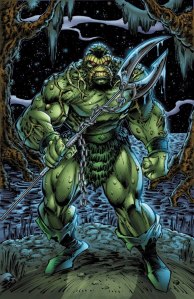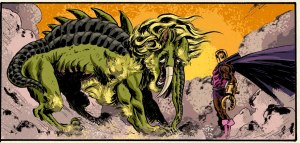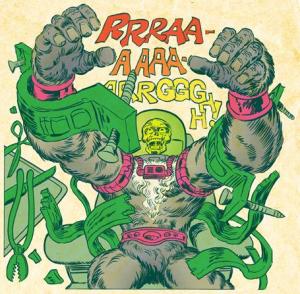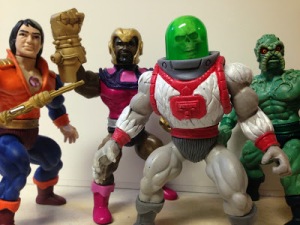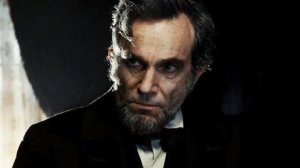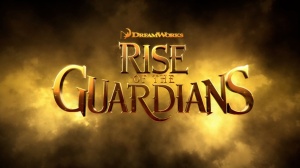It is Monday and I wrote another short story. It is possibly about legacy, how we want to be remembered. I don’t why but I have always attributed concern over legacy as being a very male trait. Therefore, I wrote a story about a woman who very much wants to be remembered a certain way, even if only by one person. The story is called Serve Me the Sky Tonight.
Serve Me the Sky Tonight
Yitzhak wakes up in the quaint doublewide purchased by Dolores and Donald Hoffman in the summer of 95. He smiles thinking of the elderly couple proudly unveiling their red rock front lawn that winds elegantly to the back and wraps around the modest patio they’d had installed. Their motorized neighbors encircle the cul-de-sac in awe. That previous evening, Dolores had explained to Yitzhak that in 1995, they were new to the community and only spoke to their neighbors with grandiose waves of the hand and mutual hellos as their neighbors strolled on morning outings. She would do a word search puzzle on the porch on her lap or perhaps a crossword. Donald would drink his mug of coffee while complaining about the news and threatening letters to the editor. And on evening strolls, it was the newly-minted couple’s turn to move through the community. They kept mostly to themselves, sensing a clique against which they had yet to press their ears. The twilight couple nodded politely to the old men in their golf shirts and cabana hats as they talked about their children, their children’s marriages, their children’s children. As they returned home, Dolores would be thinking of the stew in the crock-pot and the bowl sitting next to Donald in his barcolounger. “Yes,” Dolores commented, “95 was a good year.”
Yitzhak lies on the couch for a couple moments, imagining the smell that resulted from the recipe that Dolores had explained that night. Then he arose, kicking off the blankets, moving into the kitchen. He is overwhelmed with pride as he pictures Dolores bustling listlessly around the kitchen island during holidays in a maelstrom of candied yams and flour, denying help from her sons’ wives. The same emotion she felt as she explained May 96; how everything changed. One morning Don casually placed an envelope on the counter. As Dolores opened it, her excitement was inconsolable. It seemed they had been invited to a summer get-together, a celebration to begin the season, at the end of the block; the Burch residence. By 96, Dolores had begun to understand the politics of Cherry Creek Community and to be invited to this “soirée,” as she put it, was quite the honor. Thomas Burch had a handicap of four and had made an amiable fortune producing ball bearings. From Dolores’ understanding, the Burches had the nicest home among the retirees, yet were living well within their means. Henrietta Burch had previously been the leader, and often founding member, of various groups highlighting culture and arts and appreciation for fine wines at noon time luncheons. It was rumored that her martini parties had once been noted in a prominent Fort Wayne periodical. It was quite the honor, you see, simply to be invited.
Now Donald wasn’t the type to socialize often, but had promised as they entered their autumn years to be more open to the “excitements of life.” So, after very little gentle prodding, Don agreed and Dolores was quickly on the phone with a well-articulated RSVP. The day of the party, Dolores considered producing a large bowl of her famous potato salad, but eventually decided against it. Upon arrival to the party, Dolores was introduced to her hostess as Don was handed a brown bottleneck and ushered near the barbeque where the men congregated. Dolores found Henrietta to be a lovely woman, so humble despite her beauty, poise, and successes. The two quickly hit it off, talking of their kids. It seems that both their eldest sons had attended the same university. And soon, Dolores was accompanying Henrietta on her rounds throughout the party. Every once in a while Dolores would glance over at Don gesticulating near the fiery Weber as he would tell his bombastic, and often comical stories, while the men laughed in hysterics. “Do you ever get these moments where all your jagged edges finally fit with all the pieces that surround you?” she asked Yitzhak.
Yitzhak replied over the roast she had prepared, “no.”
In the present, Yitzhak is fumblingly trying to figure out the antiquated coffee maker. He eventually gets a dark liquid filling the carafe as he hopes it tastes something close to coffee. He is particularly tired this morning and his feet and head respond accordingly. In the glaze of sleep, he still thinks meticulously of Dolores’ story. It seems that a wave of good fortune befell the elderly couple after the party. Don have become a regular golfing buddy of Thomas, who was constantly dispersing tips that largely improved Don’s game. Dolores became very close to Henrietta and evolved into quite a necessary fixture at every Burch event. The next four years moved gracefully as the Hoffmans were having the time of their lives. Although Thomas had retired and sold his business, he was still held in high regard within his former company, so when Donald and Dolores’ eldest son, Nicholas, came upon hardships, he was able to obtain a lucrative position as a mid-level supervisor for Burch Ball Bearing. This inevitably brought family closer to the Hoffmans. The grandchildren came to visit often and both couples’ extended family spent countless recreational hours together. The kitchen was every holiday filled with the smell of cooking meats and a vast array of pies while the spry matriarch was viewed upon as a deity, a model for her daughters.
Yitzhak takes the time to revel in this thought, matronly and stoic. And as they all sit down to eat, their mother is at the top of their thankful lists. As they leave late into the evening, Don hugs Nick squarely and they load into the car all the children, whom scream with glee for their grandmother’s kiss. She leans into the car, gently places her cheek to their foreheads, “I will always be here. If you need anything…ever, you call grandma.”
But nothing gold can stay, so what chance have we carbon life forms? So it was the next summer in which Donald suffered his stroke and died the next morning. He was peaceful and heroic and his last words were “see you soon, my love.” A single poetic tear moved down her cheek. The funeral was an elegant affair, far more extravagant and grandiose than would have been in Don’s favor, but it was nice to see all the support. Henrietta never left the arm of Dolores. Thomas gave a well-spoken eulogy, however two-thirds became inaudible for the effort he put into choking back his tears.
The next year was difficult for Dolores, but with the aid of the Burches, Dolores began her new life. Her church mass attendance had risen slightly and she began making crafts, little knick-knacks out of yarn, selling them at local shoppes and bazaars. She began rereading the favorite books of her youth. She was happy, under the conditions.
Yitzhak sat at the table and looked out the back window of the Hoffman residence. The weeds had taken over the red rock lawn. The table was littered with letters addressed to Dolores, or Mrs. Donald Hoffman, from the Cherry Creek Community Management. Yitzhak, knowing Mrs. Hoffman would not mind if he imposed, opened the letter and found eviction threats as well as a convoluted point system for punishment, in which, as the letter indicated, numbered to 312 before eviction was enacted. Dolores was currently at 303. She also owed around six thousand in fines for such offenses as; an overgrown weeds, leaves not removed from front walk, garbage cans not brought in from curb, et cetera.
Thomas had taken to helping Dolores around the house after Don passed, but became ill in the winter of 05. They soon discovered Thomas had contracted skin cancer. The doctor apologized for not having found it soon enough, as the evil had spread to his innards. After that, the Burch brunches ended and Henrietta stopped dropping in to check on her friend. Dolores would go over every once in a while, but it was not the same vibrant home as in the previous summers. It had fallen to a cancer as well. Henrietta and Thomas stayed confined to one room, watching reruns on DVD of their favorite television programs, old detective serials and westerns, the Saturday morning cartoons their children would clamor out of bed in order to catch every minute. Thomas slept 16 hours a day and Henrietta listened to every breath he made in fear the next would be his last.
On one random, unnoticeable day in November, Thomas Burch fell asleep and never awoke. Upon finding him, Henrietta walked into the closet, grabbed a box from the top shelf, sat beside her motionless husband and put a bullet into her head. Dolores claims she heard the gunshot, but also claims she may not have. However, she contends that she knew the exact moment her best friend took her own life, and she fell to the ground weeping.
“To be honest, James, I couldn’t tell you whether I wept for my dear friend, or myself. I suppose probably for myself. I couldn’t weep for her, no, she was at peace now. Thomas was at peace. I, however…”
“And why for yourself?” Yitzhak asked.
“I read science fiction books. I really love them. Asimov and Arthur C. Clarke before the children were old enough to consume my time. Don knew I liked them, but I really love them. Began reading them again after his death. I like to think like the alien. Little green creatures, often, outsiders looking upon earth with fresh eyes. I would like to make guesses about life on earth, and then laugh at how truly wrong they must be. Such as the population on Earth. I bet aliens from their perfect planet look at how many people there are here and say in their funny high voice, ‘I bet no one is ever lonely there?’”
“But they’d be wrong,” said Yitzhak.
Dolores lowers her eyes, “very wrong. And isn’t that a pity?”
“Yes, yes it is.”
Yitzhak finishes his coffee and continues looking through the house. He finds old photographs of Donald and the grandchildren. He moves down the hallway past the bedroom in which Dolores had retired the prior evening. He steps with the balls of his feet, still uncomfortable in this new place. He enters the bathroom and removes his clothes, looks in the mirror. His newly christened freckles stare back at him. Yitzhak turns the shower on and steps in, watching the sweat and dirt that had congealed upon his skin flush off his flesh and down the drain to mix in the arteries of the community into one triumphant flotsam of waste. He placed his head under the warm glowing spray, thinking endlessly of the deluge of waste moving in one solid exodus, outward.
This must be what death and heaven feels like, he thinks, as the stream envelopes his ears, the dark mechanic sound matches the exact sensation on the skin in an exulting confusion like synesthesia that borders on onomatopoeia, as if they were designed to coexist.
He uses Dolores’ products to wash his hair and body, then exits the shower, collects his things, and rolls them into a nice little ball. He thinks of hair follicles he may have left, or dribbles of saliva on his pillow. Let em have my DNA. I have nothing in any file that would connect me to anything, besides, they won’t catch me until I get God’s attention and He grows tired of me. Yitzhak moves into the living room and turns on the television. He places his old clothes; his dirty and soiled clothes in his purple duffle bag and grabs his change, while he listens only slightly to the Public Broadcast in the background.
As Yitzhak becomes fully dressed, he peers through the blinds, reflecting on the previous evening. Poor Dolores, relaying her story, in the sort of death bed confession style of television dramas where the matriarch conveys the family’s most nefarious and darkest secrets, the kind one keeps under her bosom; “Raymond is not your real father,” and the like. After dinner had waned, and her life story had converged with the present, the two sat in the living room with two delicate glasses of lemonade.
“I know why you are here,” says Dolores, as their eyes meet.
Yitzhak is initially caught off guard, but succumbs to the realization that this is the time for honesty. “Do you?”
“Yes. Yes, I do.”
“And why is that?”
“I knew the moment I saw you this morning why you were here. I could tell.”
Yitzhak sits still, peering slyly over his glass. Let’s see what this woman knows. “That I need some help? A place to sleep and a meal to eat? Yes, that’s what I needed and you have been a gracious host, Dolores.”
“That’s not it. The moment I saw you I could tell in your eyes that you wanted something from me, something too big for me to give, something so big you would have to take it.” Yitzhak patiently sits and watches the woman. He doesn’t move. “Are you here to take my soul, James?”
The man across from her stays silent, never moving his eyes. And with a single instant, he becomes reanimated. “How did you know?”
Dolores now shows her hand. “I figured you wanted money at first, but I don’t have a nickel to my name. You know I don’t have a nickel to my name. Yet, you’re still here, still waiting and watching. So I had to ask myself what has motivated you to stick around. Quite simply, the only thing I can think of is that you are here to kill me. Now, I don’t know why you are here to kill me, but I suppose when push comes to shove, it doesn’t really matter.”
Yitzhak repositions himself in a search for comfort, but the hardwood chair won’t give any. “You are correct, Dolores. I am here to kill you. And you are also correct in your supposition about my motives. They do not matter.”
Silence falls on the house. The sound of the dishwasher kicking in makes a startling noise. Dolores does not jump, but instead looks out her window. Yitzhak views a tear only as it balls at the base of her mandible and drops to her blouse. She looks over at him with the saline reflection filling up her eyelets and asks, “when?”
“You will not see the sun ever again.”
“Why do you have to put it that way,” Dolores snaps back, “it’s not enough for you to take my life, but there is no need to rub it in. I am still a human, you know, and this is still my house of which you are a guest, James. Please show some goddamned manners.”
Yitzhak is taken aback, but retorts quickly, “I apologize, Mrs. Hoffman. I lost myself for a moment. I just, you know, lost…”
She interrupts him, “Oh, it’s okay, James. We don’t have enough time to quibble over these stupid thoughts. You are right; I will not see the sun again. I should have been thankful for your frankness and honesty.”
A full minute passes before Dolores speaks again, this time with a question, “What day is it?”
“I believe it is the 26th.”
“Of?”
“March. March 26.”
“I guess that’s not such a bad day to put on my gravestone.”
“I am sure there are worse.”
“How are you going to do it?”
Yitzhak repositions himself again. “I will probably smother you with a pillow.”
“Have you ever done this before?”
He lowers his voice to a calming whisper, “Yes, I have.”
Dolores matches his volume as she asks, “Do you mind if we do it on the bed?”
“That was what I was going to suggest. I’d prefer the bed.”
Dolores places her glass on the end table beside her and initiates the event. “Shall we get to it, then? No use in waiting.” Yitzhak notices her attempts to be upbeat despite her shaking hands. He thanks her silently for this.
“Is there anything I can get you before we do this?”
“Maybe a flask of scotch.”
“Okay.”
“I am only kidding, James.”
Yitzhak walks over to Dolores and gently reaches for her hand. She fits her frail hand in his and he helps her out of her chair. She puts her arm in his and he can feel her position her weight upon him. He walks her down the hallway to her bedroom, where she sits on the bed, silently staring into the closet. He stands beside her, before suggesting she lay back.
“I just need to catch my breath. This is happening very fast, you know.”
“That’s fine.”
The tears well up once more. “It is very strange to be counting your last breaths, James,” Dolores said.
“I know.”
“I don’t think Don knew he was dying the day he went. He fell asleep and never awoke. I told you about Don, right?”
“Yes, you did.”
“I am thinking right now; am I the lucky one?”
“I don’t know the answer to that.”
Dolores shrugs her shoulders and lays on her back with her arms at her side. She closes her eyes and steadies her breathing.
“Dolores?” Yitzhak asks.
“Yes?”
“If you knew I would kill you, why did you bring me home?”
“Oh, I suppose it had something to do with the pull of inevitability, like gravity. It’s not like if I left you there I would live forever. I assume in a car accident there is a point when the steering wheel is just something to hold on to. And you seemed nice.”
“Thank you, Dolores.”
“James, are you Catholic?”
“No, ma’am. I am not.”
“Are you religious?”
“You could say that.”
“Do you mind if I make my final confession to you? I have sinned, you see. I told you lies, quite a few. Don and I never attended any parties at the Burch’s home. Don wasn’t the type to socialize. We were invited, but we did not attend. And I never befriended Henrietta. I have not seen my grandchildren since Don’s funeral. But, you have to understand, that was the life I wanted to lead; the one I should have led, and that has to count for something, right? And I guess I just wanted someone to see me in that life. I am sorry, James.” She covers her face with her hands and begins sobbing.
“Now, now, there is no need to confess to me. Look here. I will make you a promise. Whenever I think of Mrs. Hoffman of Cherry Creek Community in Albuquerque, I will always remember you making others laugh at luncheons and as the centerpiece of vast family photos. I will remember the smell of holiday feasts and the looks of contempt on the face of petty and jealous neighbors. I promise.”
Dolores laughs mildly and wipes her face. She looks at the photo of Don and her on the far wall. “Don was the one who died from cancer. And he wasn’t always the right man for me, but I loved him and everyday I wished I had the strength to pull the revolver out of the closet and end my life, but I am weak.”
“That is no more.”
“I am ready, James.”
Yitzhak positions himself over Dolores, grabbing what he presumes was Don’s pillow and puts it gently on her face. He begins slowly applying pressure when he hears a soft murmur that perhaps wasn’t meant to be heard, “will it hurt?”
Yitzhak replies, “I don’t know,” and thrusts his entire weight unto the pillow. She thrashes in an instinctual manner for a few seconds before she lays still and static. His work must now begin.
After collecting and stowing his things into the purple duffle bag, Yitzhak is ready to leave. He pulls out a Polaroid camera and walks down the hallway to Dolores room. He pushes the door open, the room now glowing red, and takes a photograph of Dolores’ disemboweled and hanging body. He leaves the room, files the photo without looking at it and returns to the living room. As he turns to the television in order to turn it off, a book review program piques his interest.
The friendly-faced blonde speaks, “Some are calling him the Dean of Death. The literary world is in uproar over Leland Polk’s collection of short stories all depicting the demise of everyone’s favorite Dickensian tramp. The stories are fanciful and minimalistic. Critics are torn, but all are asking why this 30-something bookstore recluse is so obsessed with death. More on that after a touching segment about…”
Hmm, Yitzhak thinks and exits the Hoffman residence.
